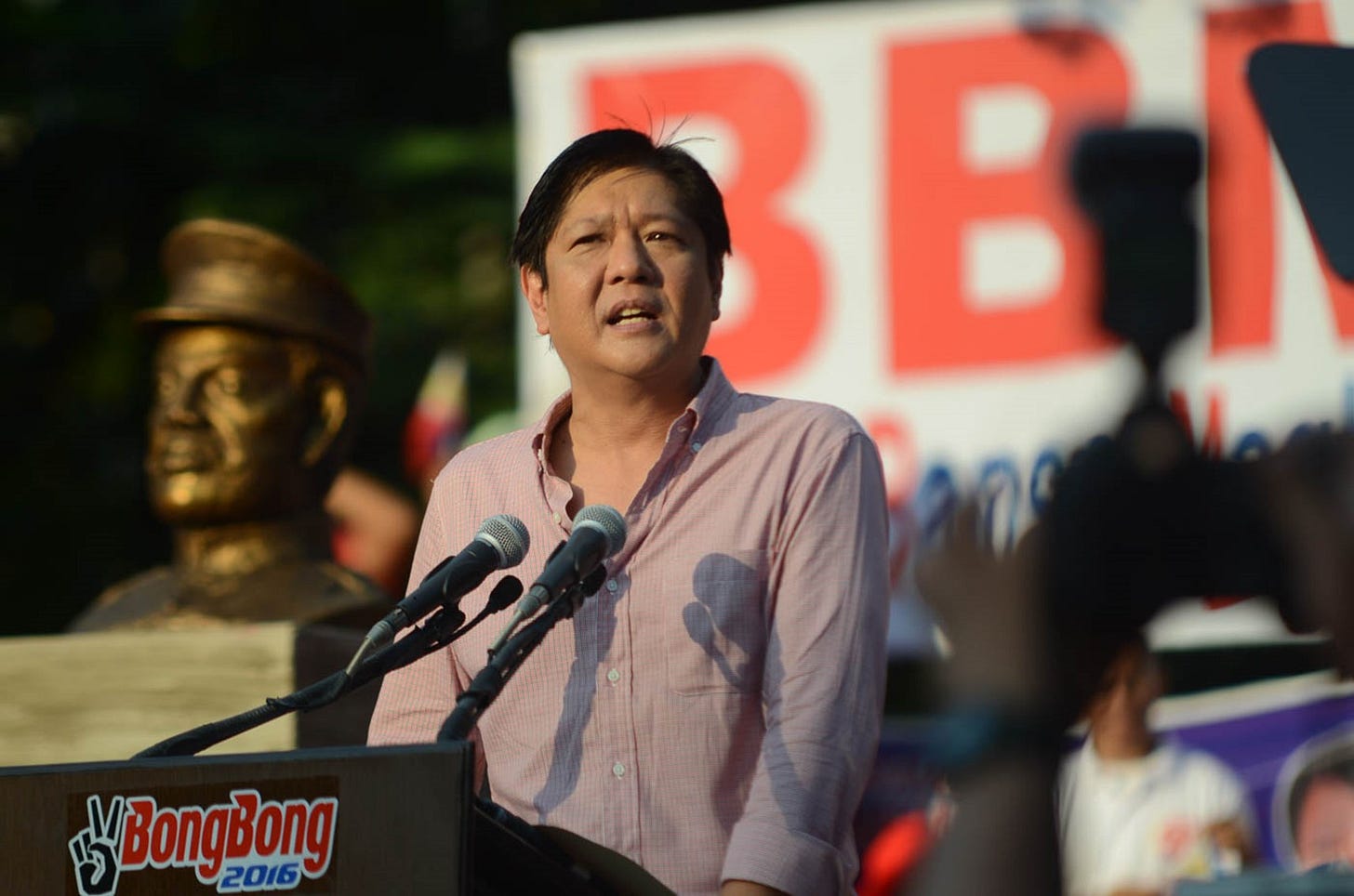Philippines' Marcos Scion Coasting Toward Presidency
The question is why
On February 26, 1986, Philippine President Ferdinand Marcos and 90 members of his entourage including his wife Imelda and his children famously boarded a US Air Force C-141 transport, fleeing the country for Hawaii with well over a million people on the streets of Manila demanding their ouster.
Among those children was Ferdinand “Bongbong” Marcos Jr., no…
Keep reading with a 7-day free trial
Subscribe to Asia Sentinel to keep reading this post and get 7 days of free access to the full post archives.

